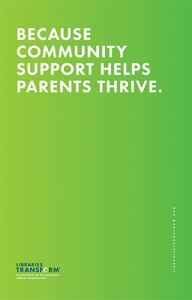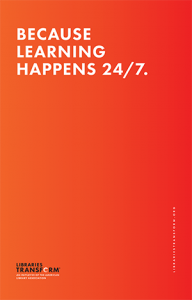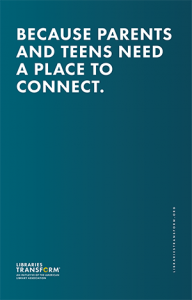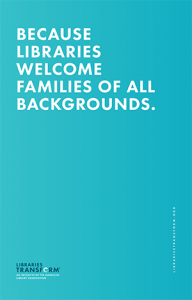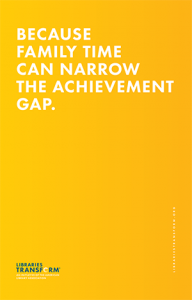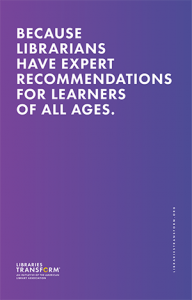Family Engagement Toolkit
The Public Library Association (PLA) and The American Library Association (ALA)’s Libraries Transform campaign have partnered to create a free toolkit for raising awareness of how libraries promote family engagement in their communities.
Libraries and librarians are important advocates for families of all types, income levels, and backgrounds: they give parents and their children a welcoming space to learn, explore, and enrich their lives together. This toolkit will equip library supporters with adaptable resources to promote family engagement at the library; the tools within can be utilized for such diverse purposes as marketing, fundraising, and legislative advocacy.
In March 2017, PLA and the Harvard Family Research Project (now known as the Global Family Research Project) released the publication, Ideabook: Libraries for Families, which serves as the basis for this toolkit.
Family engagement is a shared responsibility among families, educators, and communities to support children’s learning and development. Family engagement begins at birth and continues through young adulthood. It happens everywhere children learn—especially at the library.*
Family engagement is about developing the knowledge, attitudes, values, and behaviors that enable children to be motivated, enthusiastic, and successful learners. In libraries, this means having respectful partnerships with families and providing information, guidance, and opportunities for families to be active in their children’s learning and development. Families support their children’s learning when they believe that they are responsible for their children’s education and feel confident that what they say and do makes a difference. Trusted community educators, including librarians, can encourage and inspire families to be engaged in their children’s learning at any point in a child’s lifetime.
Learn more about The Five “Rs” and PLA’s family engagement initiatives by visiting http://www.ala.org/pla/initiatives/familyengagement.
*Weiss, Heather B., Margaret Caspe, M. Elena Lopez, and Lorette McWilliams. IDEABOOK: Libraries for Families. Cambridge, MA: Harvard Family Research Project, 2016.
BECAUSE STATEMENTS
BECAUSE COMMUNITY SUPPORT HELPS PARENTS THRIVE.
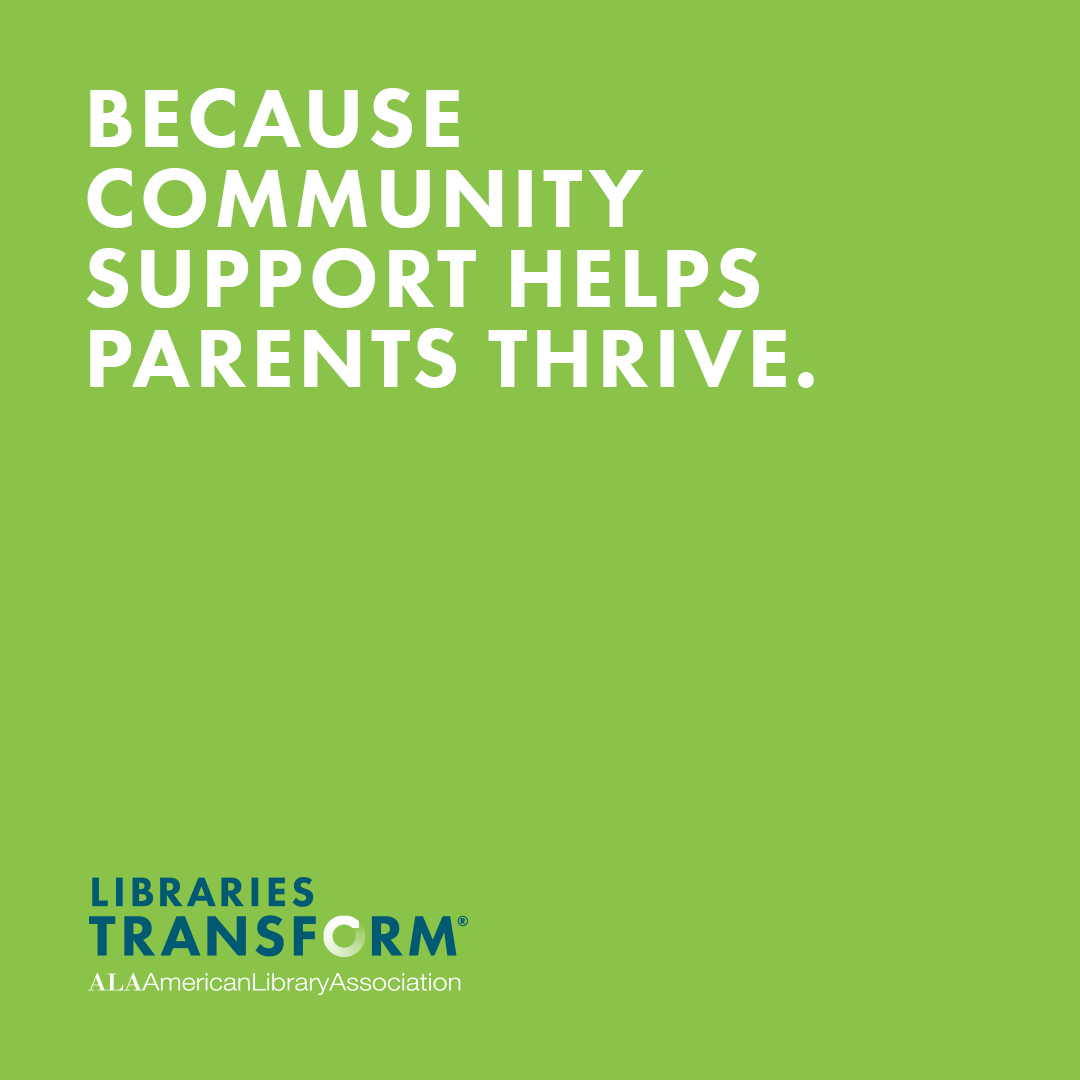
Parenting isn’t always easy, but libraries can help.
For parents, being engaged in one’s community and avoiding social isolation is crucial: staying connected to others promotes self-sustenance and reduces the odds of depression, in turn decreasing the family’s risk of child behavioral issues and child maltreatment.* Libraries can serve as a crucial lifeline for parents, providing community programs that give families a chance to socialize and support one another. Beyond that, libraries also offer all kinds of resources and materials that can help parents’ thrive, from guides about raising children to information for maintaining their own physical and mental well-being.
*Small, Mario Luis. Unanticipated Gains Origins of Network Inequality in Everyday Life. Oxford: Oxford University Press, 2010.
BECAUSE LEARNING HAPPENS 24/7.
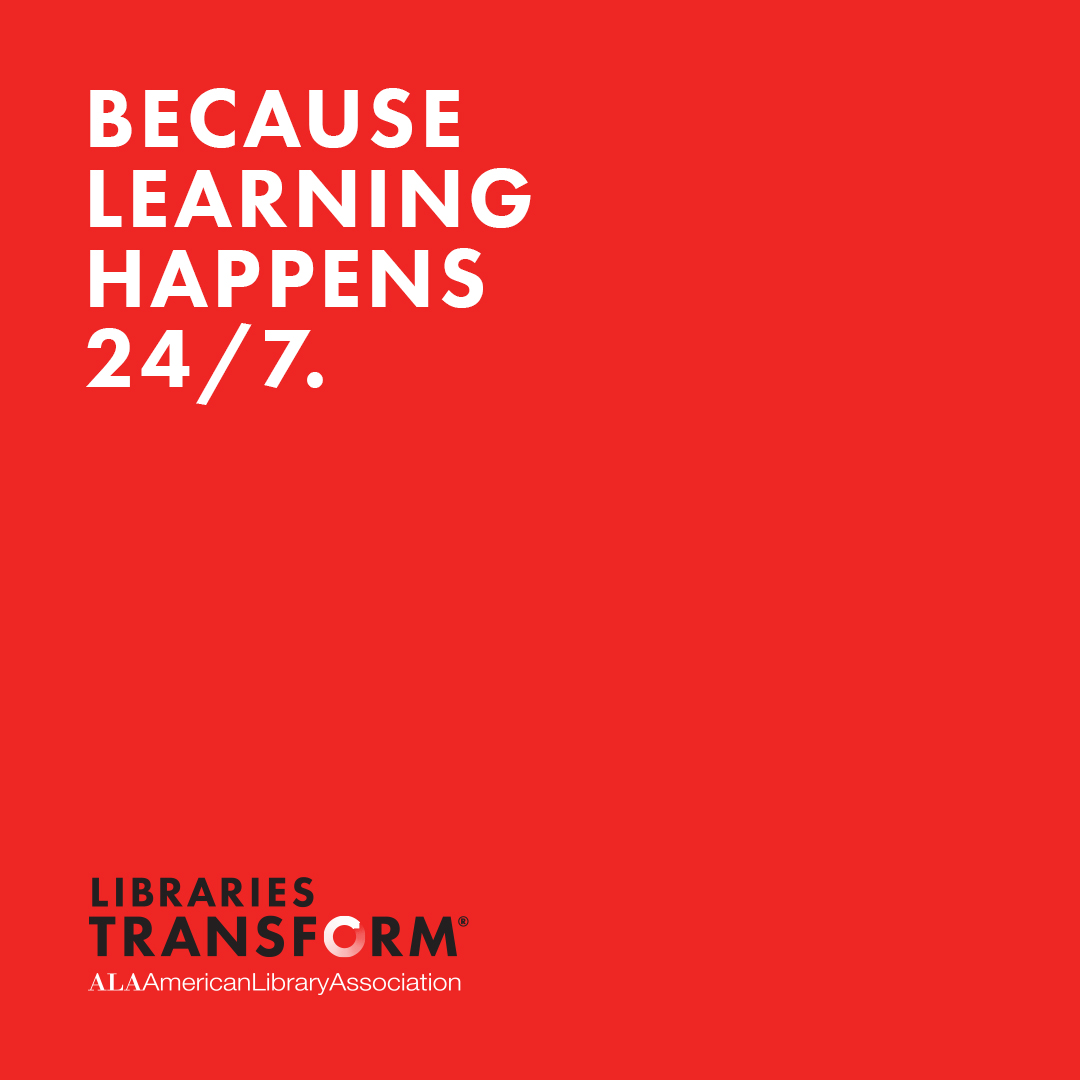
Libraries help kids learn outside of the classroom.
Children only spend one out of every six waking hours at school*, but libraries help families make the most out of evenings, weekends, and school breaks. Libraries offer free books, movies, games, and programs that let kids challenge themselves, explore new ideas and pursue their passion when they’re not in class. For parents, this provides a valuable opportunity to help their child learn, get to know their interests and strengths, and discover new ways to engage them at home.
*Expanding Minds and Opportunities: Leveraging the Power of Afterschool and Summer Learning for Student Success. Washington, D.C.: Collaborative Communications Group, 2013.
BECAUSE PARENTS AND TEENS NEED A PLACE TO CONNECT.
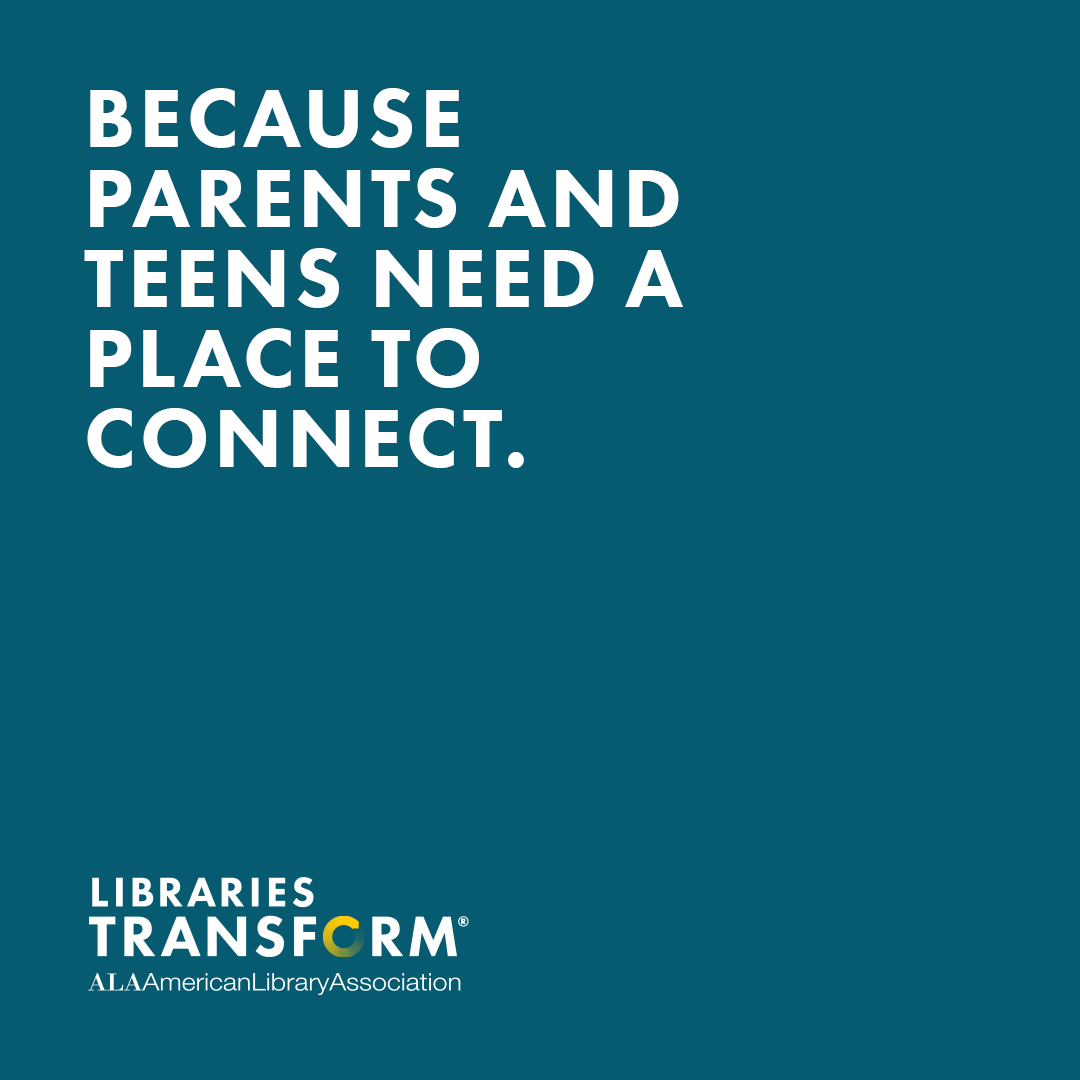
Libraries create quality time between adolescents and their parents.
Humans undergo a key phase of brain development between puberty and their mid-twenties, and experts agree that strong relationships with adults are crucial during this time. Parental support helps teenagers improve their interpersonal and decision-making skills as well as avoiding impulsiveness and risk-taking.* Libraries help families with teens forge those connections: enriching programs for all ages let kids and their parents bond by learning side-by-side. Even going to the library to check out materials together is a free and easy way for families to spend time together any time of the week—diverse offerings including books, movies, comics, and games for all ages make sure there’s something available for every member of the household. And as teens grow up, libraries have resources that let parents help them every step of the way, from college applications to job searching.
*Steinberg, Laurence D. Age of Opportunity: Lessons from the New Science of Adolescence. Boston: Houghton Mifflin Harcourt, 2015.
BECAUSE LIBRARIES WELCOME FAMILIES OF ALL BACKGROUNDS.
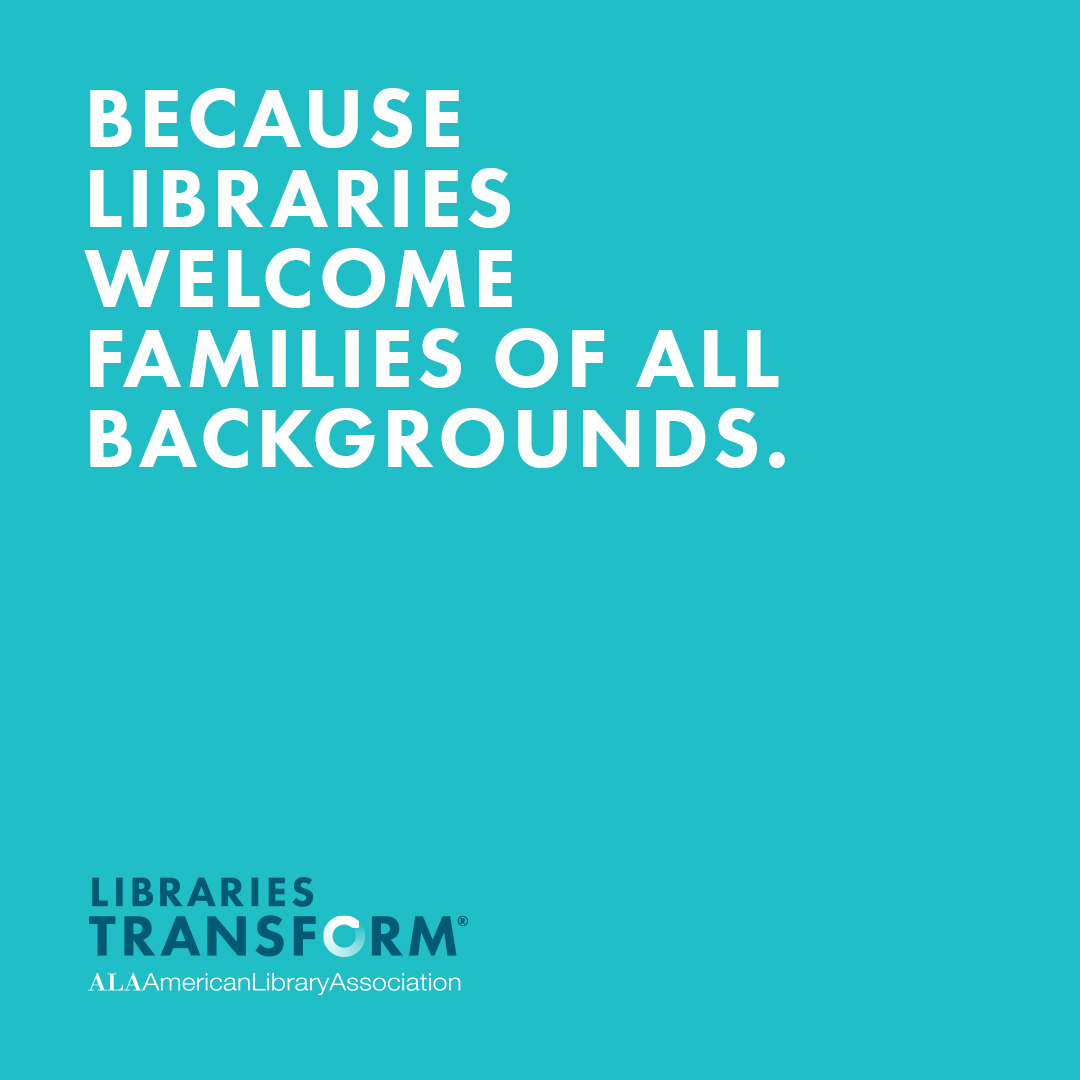
Libraries ensure that families of any income level have a place to spend time together.
On average, families living below the poverty line visit libraries more than any other community space, including museums, bookstores, and theaters.* Libraries have long worked to provide welcoming spaces and enriching resources for people across the socioeconomic spectrum, promoting a world where anyone can learn something new, connect with their communities, or just enjoy a great book or movie at no cost. For lower-income families, the library can be a crucial gathering place, allowing children and their parents to enjoy quality time and explore together.
*Noel, Amber, Patrick Stark, Jeremy Redford, and Andrew Zuckerberg. “Parent and Family Involvement in Education, from the National Household Education Surveys Program of 2012.” National Center for Education Statistics, 2016.
BECAUSE FAMILY TIME CAN NARROW THE ACHIEVEMENT GAP.
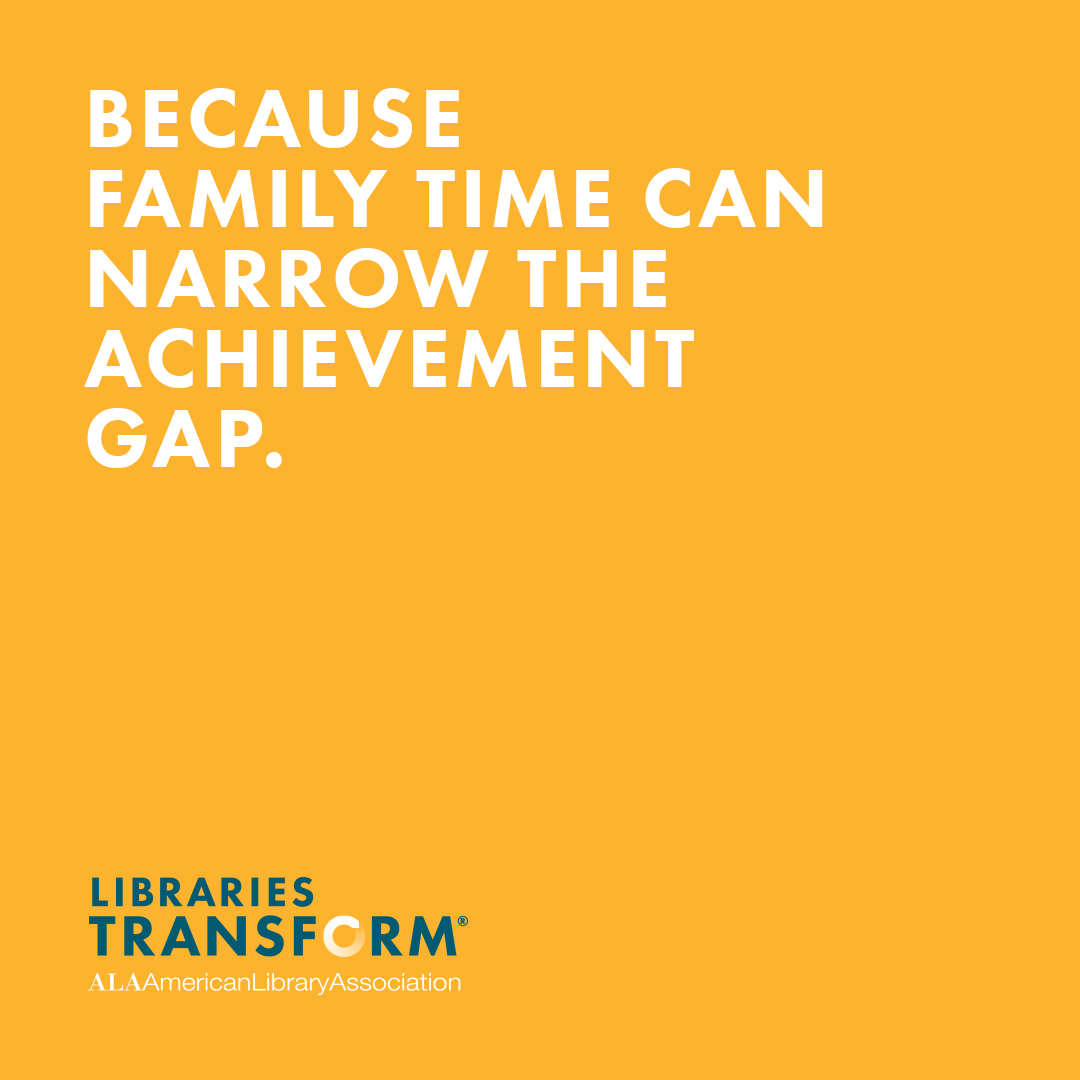
Libraries combine family bonding and engaged learning.
Research shows that high parental involvement can help reduce the literacy gap between children of more- and less-educated mothers.* But family engagement doesn’t always come cheap: high-income households spend almost seven times more money on enrichment activities than their low-income counterparts.** Fortunately, libraries help level the playing field, offering free access to collections and programs that let families come together without the steep price tag.
*Dearing, Eric, Holly Kreider, Sandra Simpkins, and Heather B. Weiss. (2006). “Family Involvement in School and Low-Income Children's Literacy: Longitudinal Associations Between and Within Families.” Journal of Educational Psychology 98 (2006).
**Duncan, Greg J., and Richard J. Murnane. Whither Opportunity? Rising Inequality and the Uncertain Life Chances of Low-Income Children. Russell Sage Foundation, 2011.
BECAUSE LIBRARIANS HAVE EXPERT RECOMMENDATIONS FOR LEARNERS OF ALL AGES.
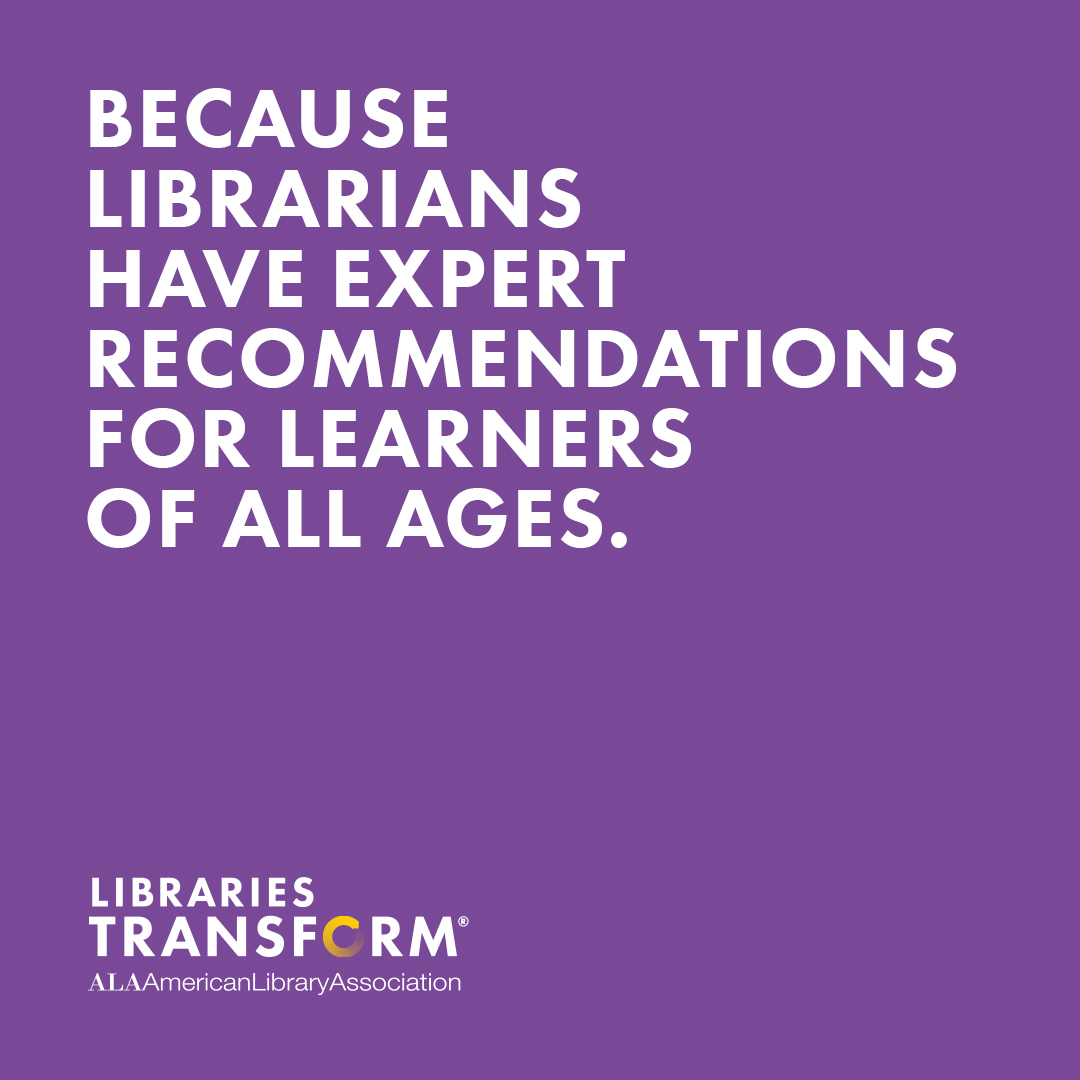
Your library offers thousands of books, movies, and games. A librarian can help you pick the right ones.
Parents looking for children’s media have more choices than ever, but having endless options can make life complicated. In a recent study of families with 2- to 10-year-olds, more than 50% of parents reported needing assistance finding the best-quality educational materials to support their children’s learning.* With their vast knowledge and expertise, librarians are a key resource for families like these, able to suggest high-quality media for kids of all age groups and areas of interest. Thanks to libraries, parents can confidently choose titles to read, play, or watch with their children.
*Rideout, Victoria. “Learning at Home: Families’ Educational Media Use in America.” Joan Ganz Cooney Center, 2014.
Libraries Transform Logo
Printable version of Libraries Transform Critical Thinking Toolkit (PDF)
Download the Libraries Transform logo and Because statements for print, web or social media.
Low Resolution JPG | PNG | GIF
EPS Vector Files Two Color | Black on White | White on Black | PMS | CMYK


